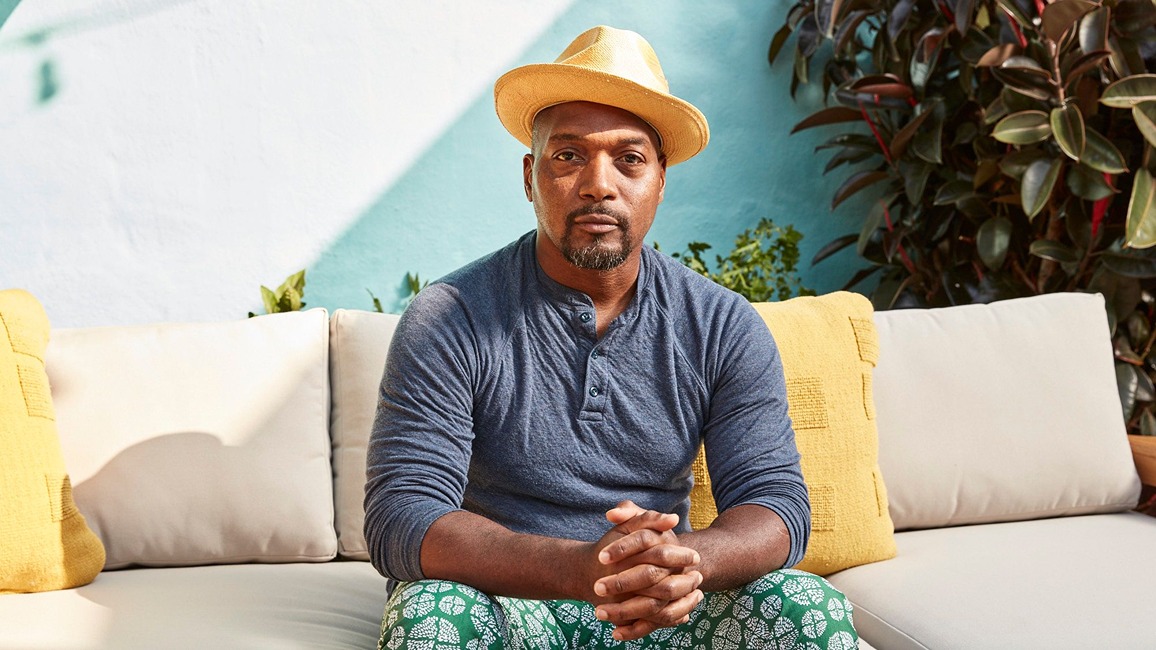Renowned vegan chef Bryant Terry is on the forefront of leading the fight for food justice. An award-winning author and speaker, he is known for his advocacy of sustainable food systems and access to healthy food for all.
Having grown up an omnivore, his family owned farms in rural Mississippi and kept gardens in Memphis, allowing him to appreciate and learn firsthand the benefits of access to fresh local food. Terry began moving towards what he calls “a more compassionate diet” as a 10th grader, after hearing the hip-hop song Beef by Boogie Down Productions.
Learning more about the ethical, health and environmental reasons for maintaining a vegan diet from Rastafarians and other Black elders in Memphis also played a role in him becoming the food ethicist he is today.
EBONY: When did you begin advocating for a healthy and sustainable food system, and what inspired you to champion this cause?
Bryant Terry: When I was a doctoral student in history at NYU, I was deeply inspired by programs of the Black Panther Party in the late 1960s and 70s that addressed the intersection of poverty, malnutrition, and institutional racism—specifically their Grocery Giveaways and Free Breakfast for Children Program. I felt compelled to get involved in the food justice movement because so many Black communities had the worst health outcomes which are directly related to the food that is readily available to folks. I enrolled in culinary school to gain the skills to found an organization that used cooking to empower and politicize young people from historically marginalized communities to fight food apartheid.
What issues are you working to combat through your food justice activism?
I certainly want to work towards a world where we all have the basic human right to healthy, fresh, affordable, and culturally appropriate food. That being said, the food justice movement has to ensure that social and economic justice are central to this project and recognize that lack of access to healthy, fresh, affordable, and culturally appropriate food is simply one indicator of material deprivation. Most often, the most food-insecure communities are dealing with environmental racism, crumbling infrastructure, underfunded segregated public schools, and lack of safe green space. We have to take a holistic view to healing our communities.
What does a sustainable food system look like to you?
One in which we all are afforded the basic human right to clean air, water and soil, and access to healthy, fresh, and affordable food.
What can individuals do to help advocate for and work towards a sustainable food system and food justice?
While the food justice movement engages in organized forms of resistance, I think it is equally important that we uplift and celebrate seemingly apolitical acts such as growing food, making meals from scratch and building community around our home tables as highly political. Dare I say radical, in an industrialized food system controlled by a handful of multinational corporations who spend billions of dollars encouraging us to buy food at corporate-owned supermarkets, eat out at fast food restaurants, and stuff our faces as quickly as possible, so we can get back to work.





More Stories
The One Thing You Should Never, Ever Do if You Have Insulin Resistance and Want to Lose Weight
Tuna Salad Lunch Box – JSHealth
Advanced Wellness Course – Heart Health